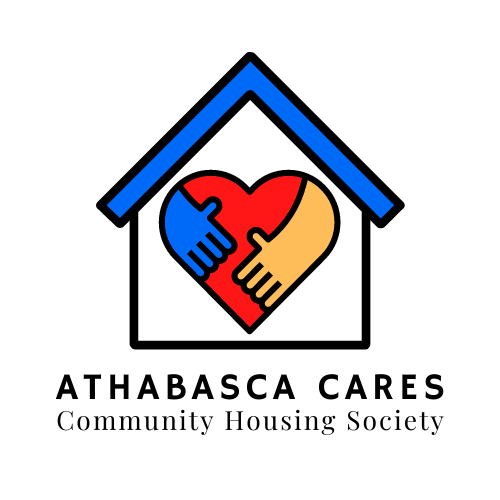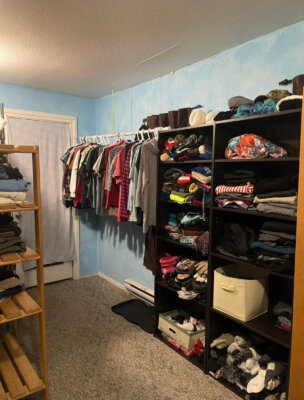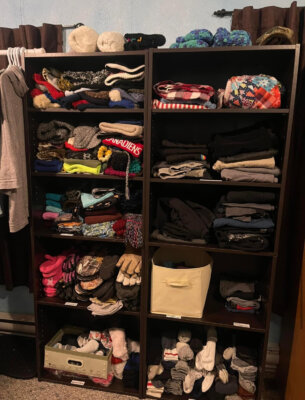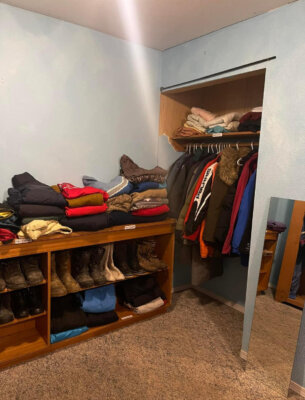AU employee founds shelter to support at-risk communities in Athabasca
Taking action to combat the lack of shelters in Athabasca, Krystal Zahara founded the Athabasca Cares Community Housing Society in 2020
After a man died of cold exposure near the Athabasca River in winter 2020, Athabasca resident Krystal Zahara knew she needed to do something.
“He should have survived, but he didn’t have somewhere to go,” she said.

Zahara, who works at Athabasca University (AU) in the Faculty of Graduate Studies, was deeply affected by the incident. She soon founded the not-for-profit Athabasca Cares Community Housing Society, and recruited a board of like-minded folks concerned about housing insecurity in the region.
Two years later, the group secured funding from the Rural Development Network and officially opened the doors to the town’s only dedicated shelter.
Before the shelter opened, Zahara, who serves as the organization’s president, explained that unhoused people would rough-sleep in bank lobbies, makeshift shelters by the river, business entryways, and in bushes under tarps.
In two years of operation, the shelter has seen demand more than double. They regularly served 11 clients in fall 2022. So far this winter, they have supported about 25 individuals—including about nine who stay there every night.
Zahara explained that the increasing cost of living and the lack of affordable homes in Athabasca is contributing to the rise in the number of folks using their services.
“We have clients utilizing our program this year who have never experienced homelessness in the past,” she said.
Creating a safe space in Athabasca
For the most part, the shelter serves people who are unhoused or housing insecure.
Housing insecurity affects all communities and is not exclusive to big cities. In fact, it’s a reality that every rural community faces.
“Sometimes homelessness looks like someone who is couch surfing but doesn’t always have somewhere to stay. Sometimes it’s people who are at immediate danger of losing their place. Or, sometimes it’s people who have to decide between eating and paying rent,” Zahara said.
“Homelessness is a spectrum, and people move on that spectrum constantly.”
A home for the unhoused
Operating on harm-reduction principles that aim to reduce risks associated with drug use, the shelter offers more than just a warm meal and a warm place to stay.
“We have a washer and dryer, showers, and even have our own little free store where people can go pick out clothes and winter gear. It really adds a sense of pride when you get to pick your own clothes.”
The shelter is more like a home for clients and doesn’t feel institutionalized, Zahara added.
“It’s an old house with a kitchen and living room. Our staff cook the meals, but often times you’ll find the clients up and making coffee, cleaning, fixing a broken water pump, or cooking bacon and eggs in the morning,” she said.
“They feel safe where they are, and they treat it like it’s their home.”
We have a washer and dryer, showers, and even have our own little free store where people can go pick out clothes and winter gear. It really adds a sense of pride when you get to pick your own clothes. Krystal Zahara
Athabasca Cares Community Housing Society partners with local agencies
Aside from providing meals and a warm place to stay, the Athabasca Cares Community Housing Society partners with agencies across Athabasca to offer other opportunities to help clients.
Local lawyer Kate Nunn offers a free biweekly clinic at the shelter to help people in need of legal advice. She also helps them with the paperwork needed to get proper identification.
“The legal and social needs of our users are complex and can appear insurmountable, but my experience is that the process of working together on small steps and concrete solutions is worthwhile and enriching for all of us,” said Nunn.
“My hope is that the shelter and clinic’s work will build trust and fairness in our community.”
Nunn has helped 24 clients so far—and offers her services to anyone in the community who may not be able to afford legal services otherwise.
The shelter also offers biweekly sessions with Together Talk, a private counselling company in the Athabasca area. They offer group, trauma-informed, and addiction counselling, depending on the type of services needed.
Zahara said the shelter even has a hairdresser who comes in and offers her services for free.
“It all just helps make people feel good,” she said.
Community support integral to success of shelter
Thanks to community support and funding, Zahara explained the shelter can support up to 20 people per night. They also have special quarters for women and families in crisis.
Zahara credits the not-for-profit’s board of directors, made up of a volunteer group of women in Athabasca, for bringing together the unique range of services to clients.
“This wouldn’t be possible without the group of women that I work with, including Gail Leicht, who is a research ethics officer at AU.”
“They have been integral in the development of the program and the support we provide for our clients.”
Zahara also thanked Athabasca University and president Dr. Alex Clark for a recent donation of $2,000 that went directly to supporting the operational costs of the program for 2024.
“Kindness and generosity breeds kindness and generosity.”
“When we have people like AU contributing in this way, it starts a domino effect and other people want to help too.
“Supporting the shelter benefits everyone.”
Founder earns provincial honour
Zahara recently received an Alberta Blue Cross Community Wellbeing Award for her volunteer work with the shelter.
She is one of 75 Albertans who earned the honour, which celebrates Alberta’s exceptional volunteers making a difference in the health and wellness of Albertans.
Learn more about the Athabasca Cares Community Housing Society.


